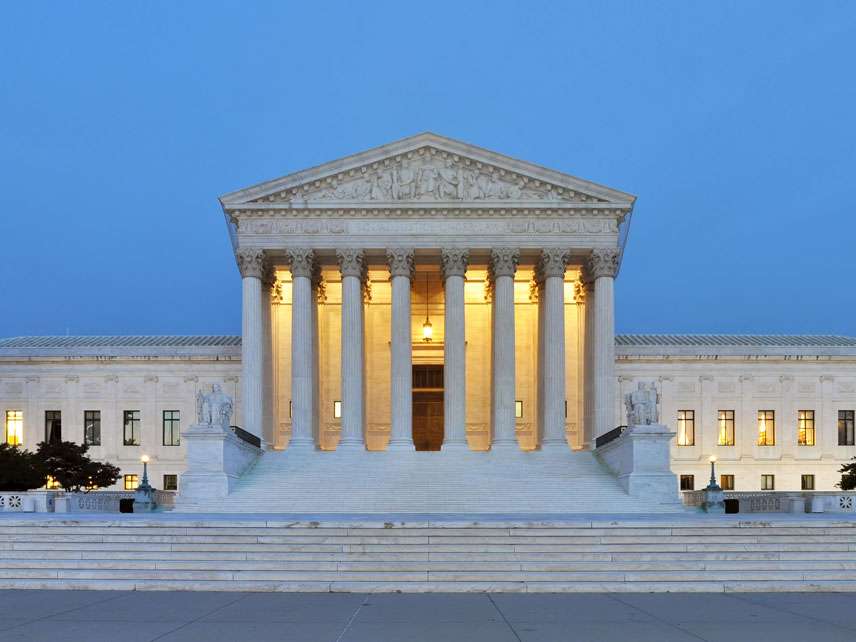Supreme Court Agrees to Hear Significant New Case About Civil Asset Forfeiture and the Bill of Rights
The justices will hear oral arguments next term in Timbs v. Indiana.

Today the U.S. Supreme Court agreed to hear a significant new case that raises important questions about the Bill of Rights, the 14th Amendment, criminal justice, and civil asset forfeiture.
The case is Timbs v. Indiana. It arose in 2013 when a man named Tyson Timbs was arrested on drug charges and sentenced to one year on home detention and five years on probation. A few months after his arrest, the state of Indiana also moved to seize Timbs' brand new Land Rover LR2, a vehicle worth around $40,000. A state trial court rejected that civil asset forfeiture effort, however, on the grounds that it would be "grossly disproportionate to the gravity of [Timbs'] offense" and therefore in violation of the Eighth Amendment to the U.S. Constitution, which forbids the imposition of "excessive fines."
The state's forfeiture effort clearly qualifies as excessive. Timbs' original crime carried a maximum financial penalty of just $10,000. And as the trial court observed, "a forfeiture of approximately four (4) times the maximum monetary fine is disproportional." The trial court was right to deem the state's actions unconstitutional.
But the Indiana Supreme Court took a different view when it decided the case in 2017. "We conclude the Excessive Fines Clause does not bar the State from forfeiting Defendant's vehicle because the United States Supreme Court has not held that the Clause applies to the States through the Fourteenth Amendment," that court said.
Timbs, represented by the libertarian lawyers at the Institute for Justice, then asked the U.S. Supreme Court to clarify that the Eighth Amendment's ban on excessive fines does indeed apply in all 50 states. That is the case that SCOTUS agreed to hear today.
This one should be a no-brainer. Since the late 19th century, the Supreme Court has been applying, or incorporating, the various provisions contained in the Bill of Rights against the states under the Due Process Clause of the 14th Amendment, which forbids state governments from depriving any person of life, liberty, or property, without due process of law. The Eighth Amendment's Cruel and Unusual Punishments Clause, for instance, is now a well-settled part of every state death penalty case that is litigated in both state and federal court. The Excessive Fines Clause is entitled to the same judicial respect.
This case also gives the Supreme Court an opportunity to consider the broader injustices that occur in the name of civil asset forfeiture. As Justice Clarence Thomas observed last year, "this system—where police can seize property with limited judicial oversight and retain it for their own use—has led to egregious and well-chronicled abuses." By ruling in favor of Tyson Timbs, the justices can rein in at least some of this abuse.
The Supreme Court will hear oral arguments in Timbs v. Indiana sometime in its 2018-2019 term.


Show Comments (51)